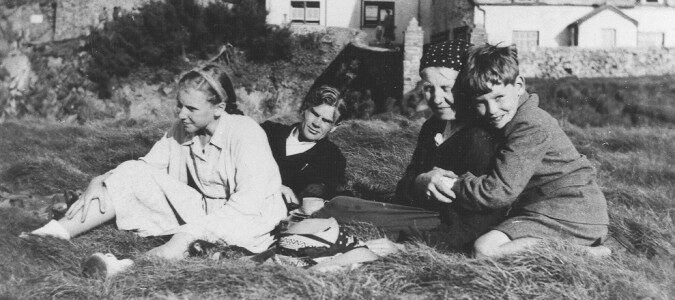It is to be expected that writers will have a muse, and it seems that Lucy Barfield was that muse for C.S. Lewis.
Lucy was an accomplished dancer, musician, composer, artist and poet. She had a special vitality which inspired both her father and godfather (Barfield and Lewis respectively).
The character of Lucy Pevensie appears to be based in part on Lucy herself, sharing her name, fair hair, and lively personality.
Tragically the year Lewis died was the year Lucy’s illness began: in 1963, aged just 28, Lucy’s fate was to suffer multiple sclerosis for 40 years. The disease robbed her of all physical capacity and confined her to a hospital bed.
As her strength weakened, she identified more with the Lucy in Narnia. Barfield expressed this with words for her: “What I could not do for myself the dedication did for me. My Godfather gave me a greater gift than I had imagined.” Narnia readers wrote hundreds of letters to Lucy, but only two reached her. These two letters gave her great joy and were received with wonder as snow-flakes in the desert.
In spite (or perhaps because) of her debilitating condition, Lucy served as a muse and inspiration to her father, Owen Barfield, representing the Eternal-Feminine, and Wordsworth’s Romantic ideal of a young English girl, in his myth-allegory, The Rose on the Ash-Heap.
Lucy never lost her will for life nor her spiritual strength, and she far exceeded all the medical prognoses for her debilitating condition. To the end Lucy was a beacon of light, a lit lamp-post in a wintery land.



